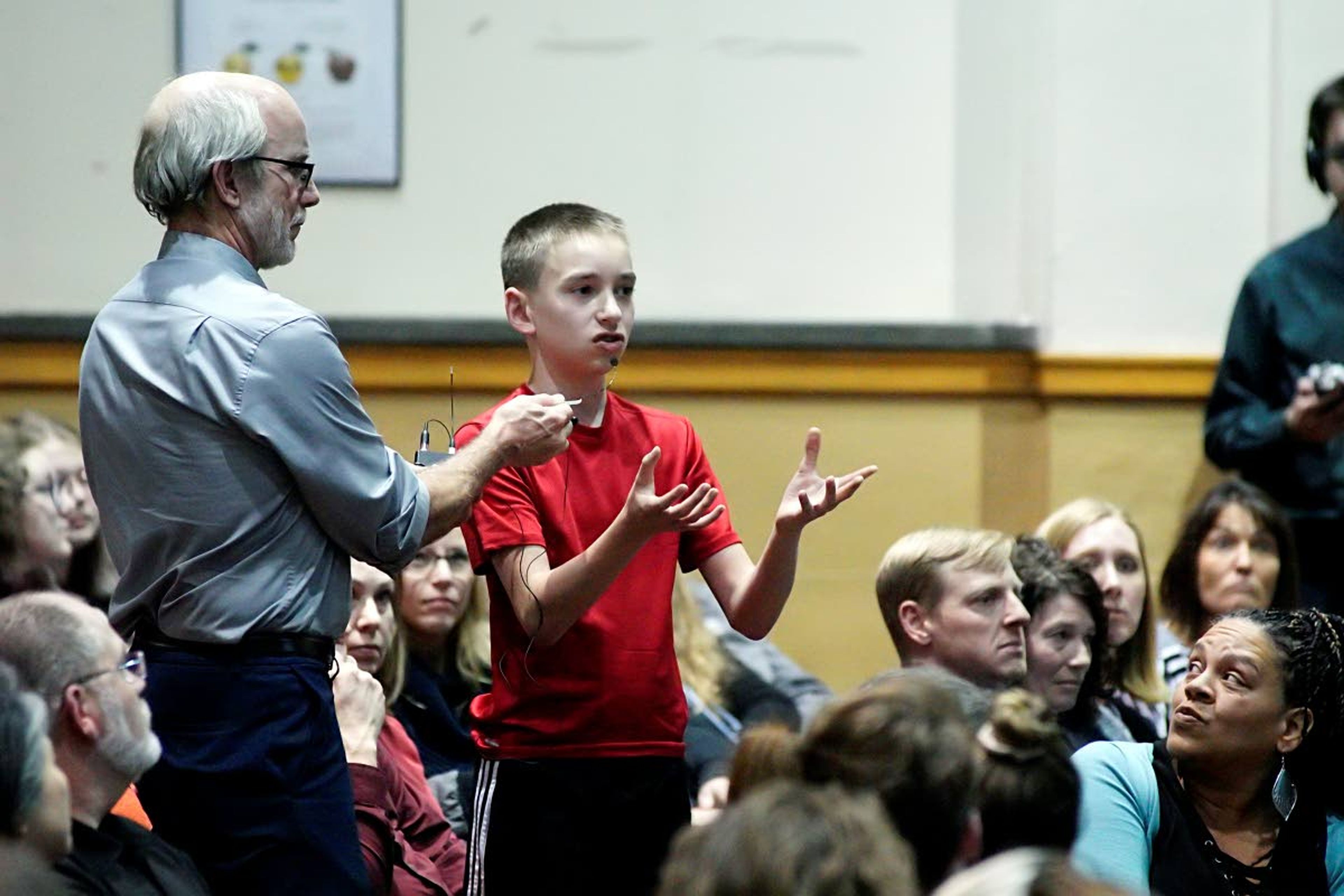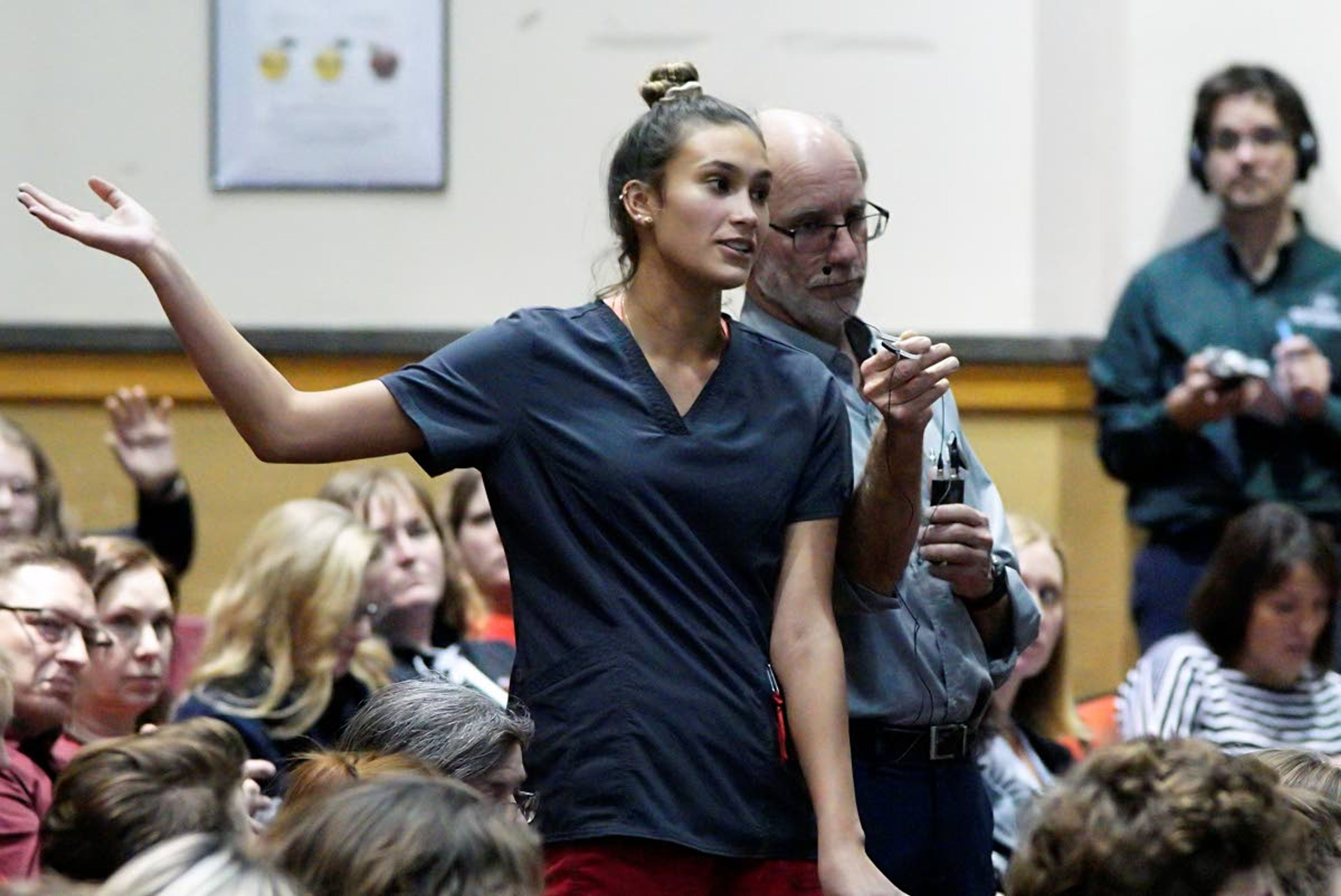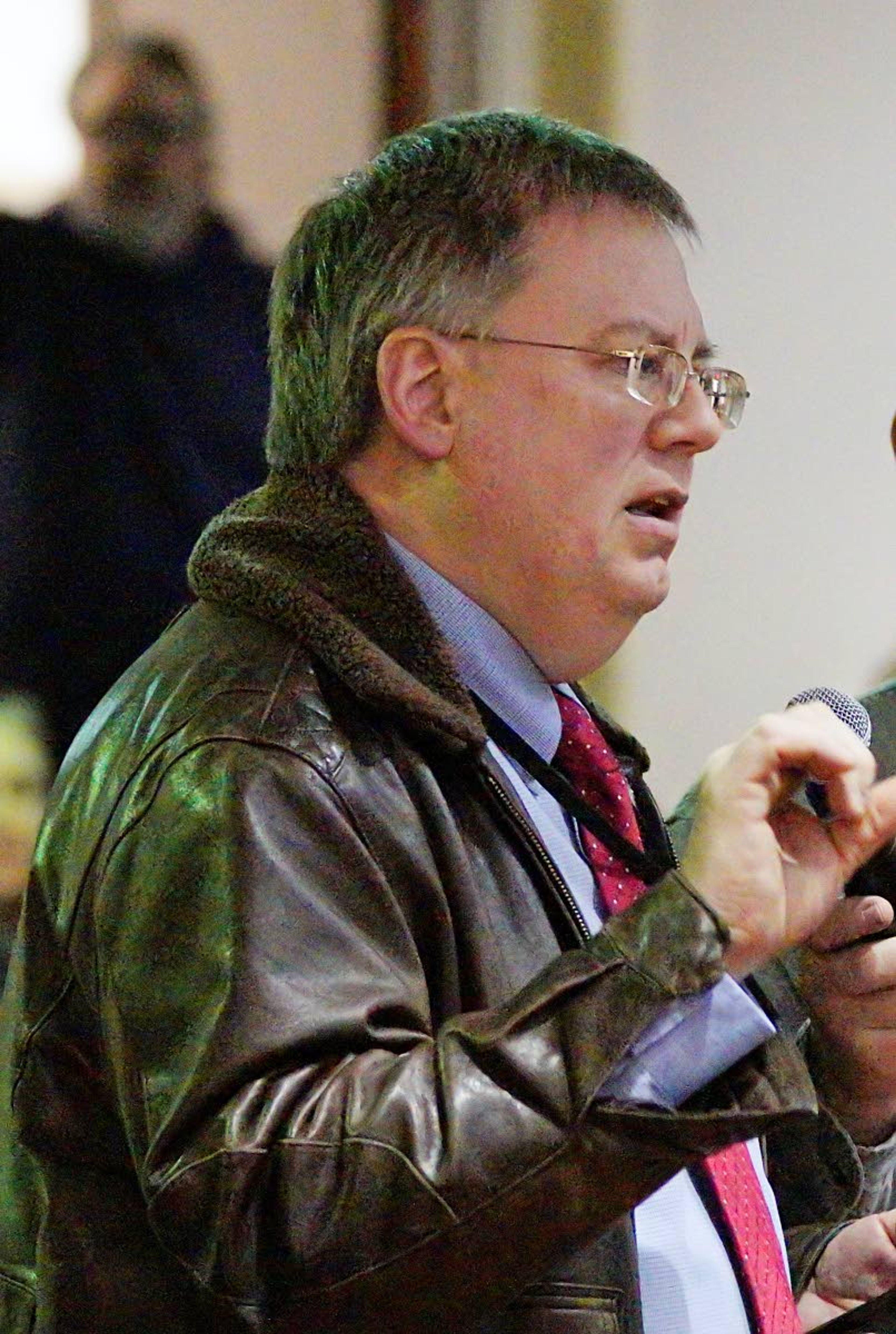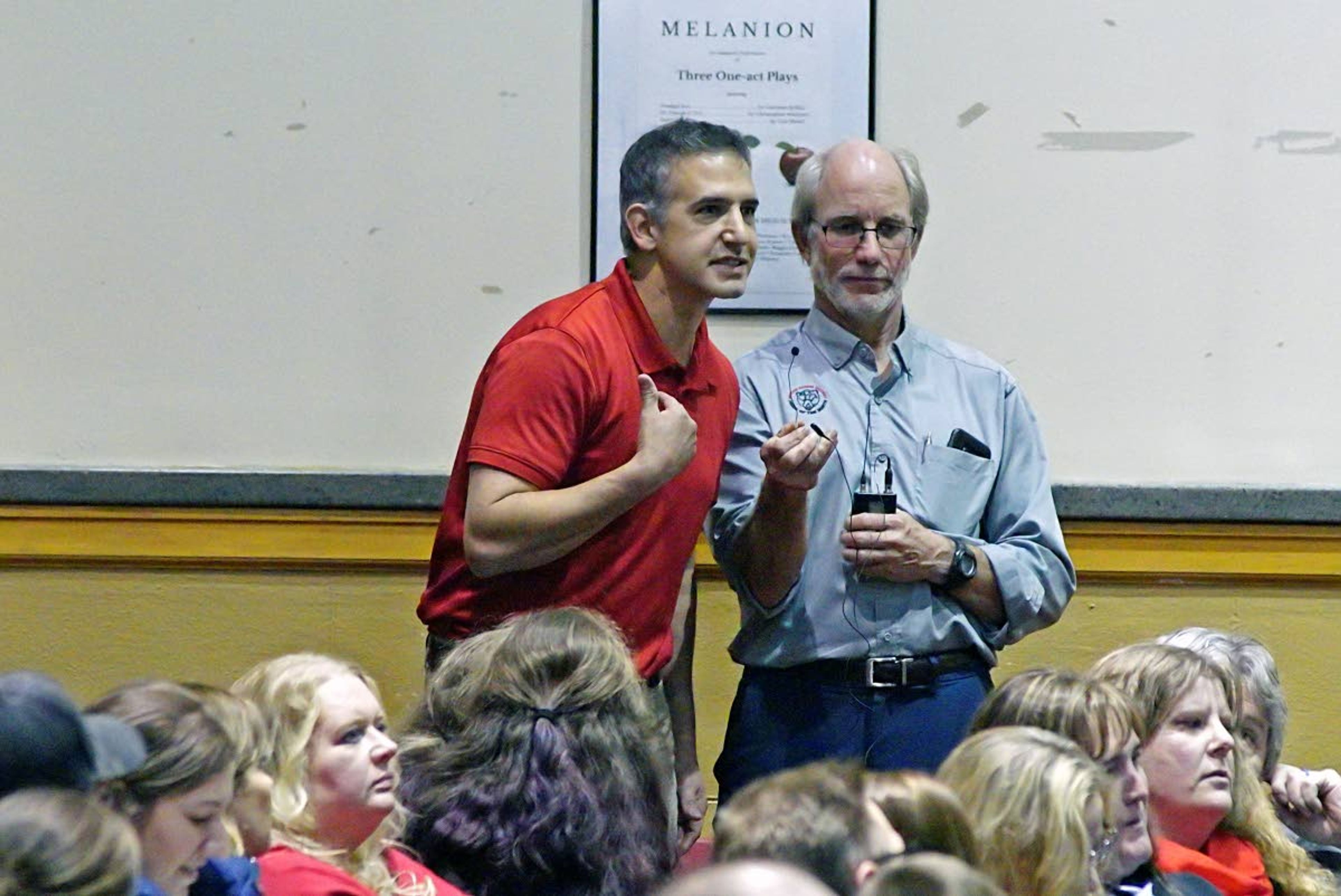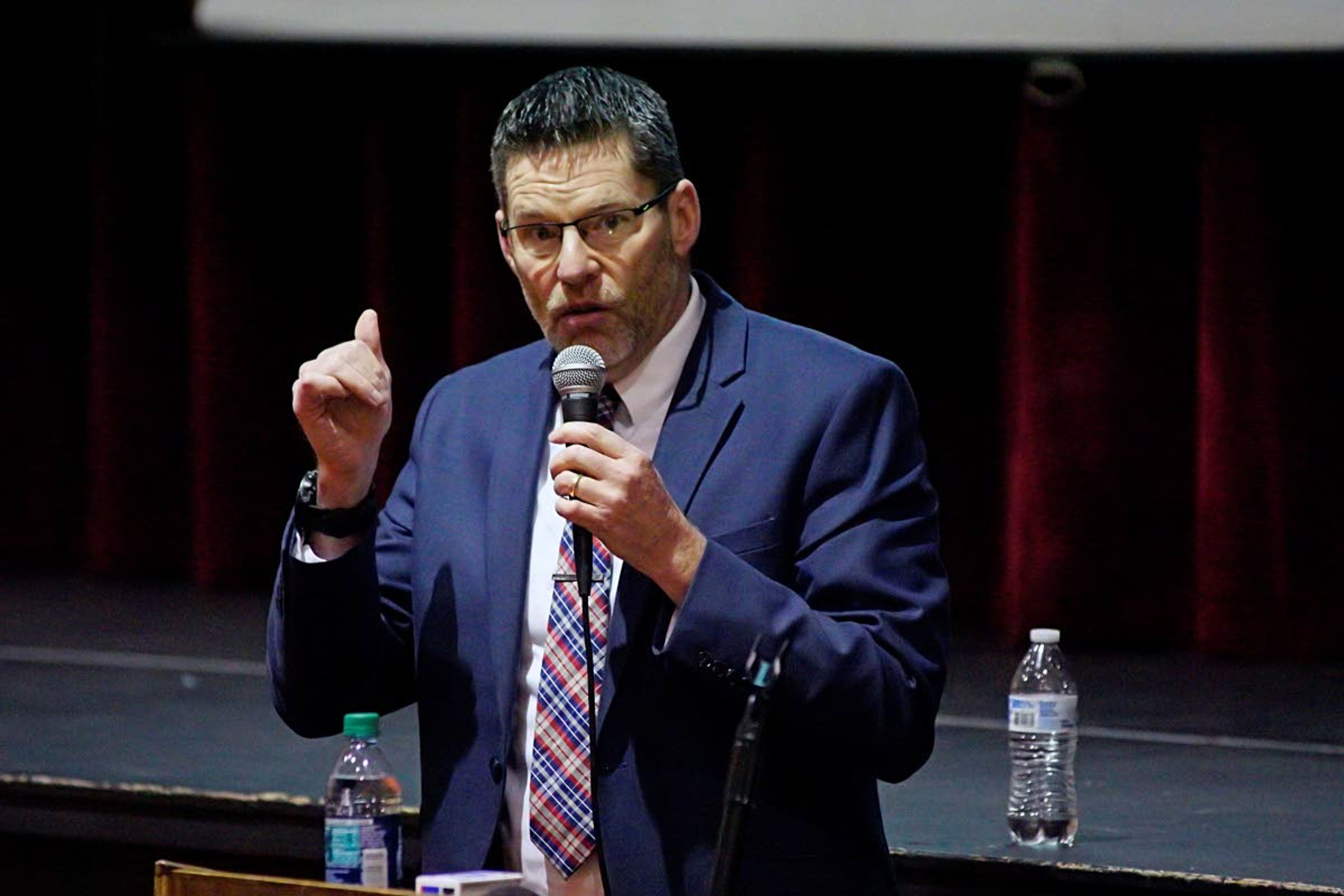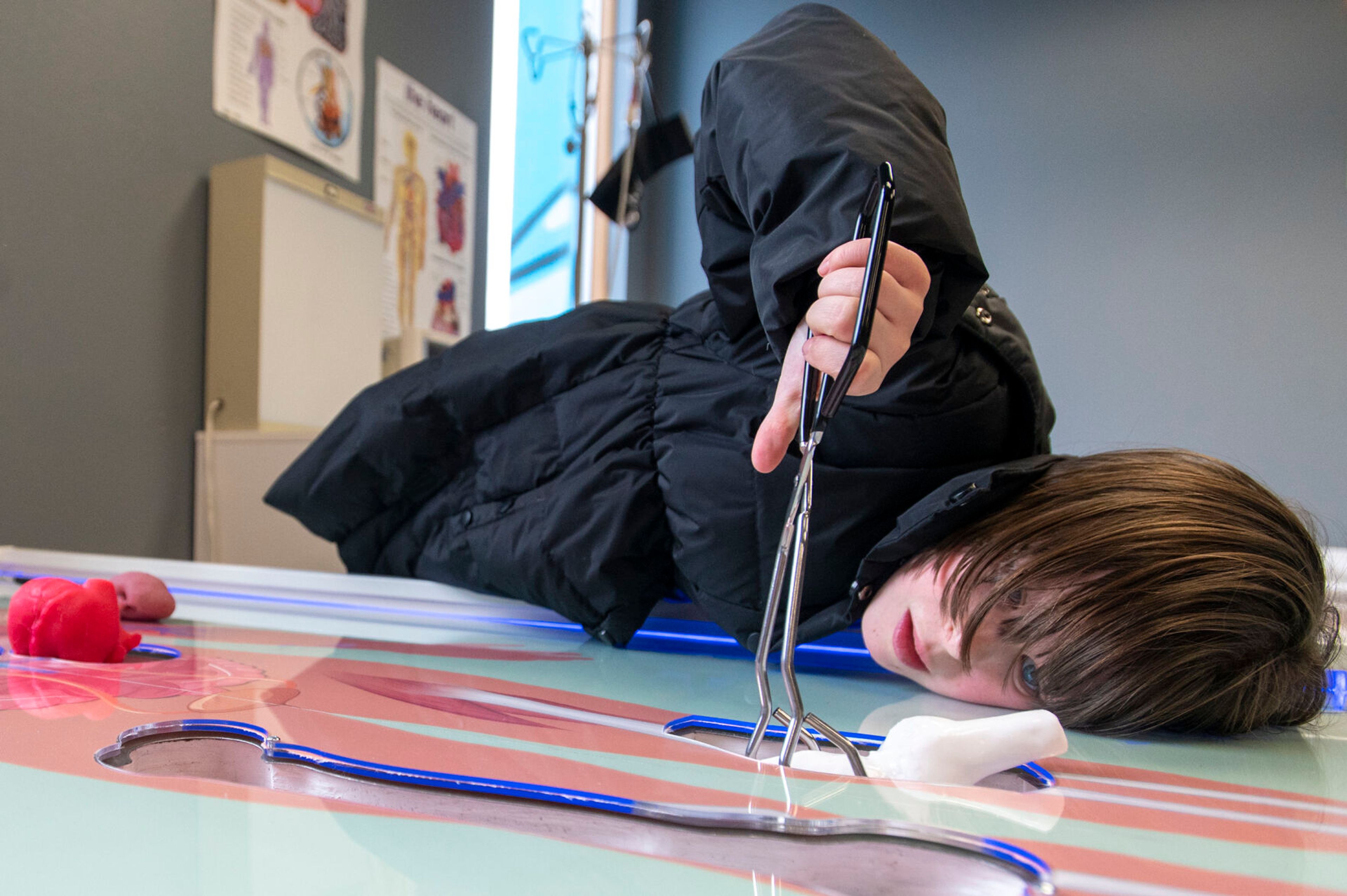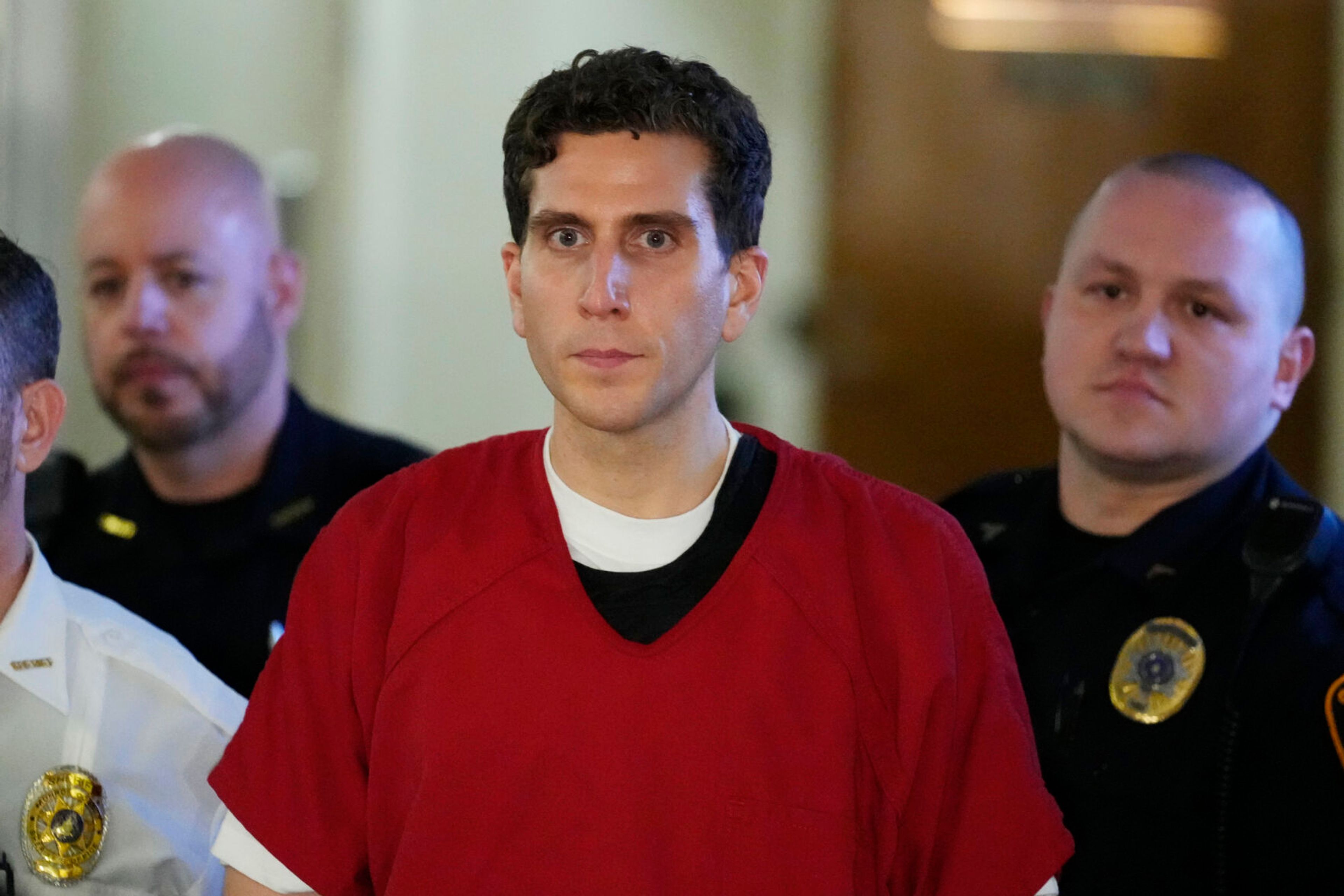Moscow's mastery-based education under scrutiny
District forum takeaway: New grading system leaves parents confused, many students unmotivated and teachers in need of a voice
If the Moscow School District Board of Trustees wanted feedback on mastery-based education, they got it Tuesday night at a packed special meeting at the Moscow High School Auditorium.
Following a 45-minute presentation from administrators on the basics, history and the district’s implementation efforts for the new system, parents and students took turns addressing district leaders, who sat silently at the head of the room while comments were offered and compiled for consideration.
The common themes? Parents are confused about the system and its merit; many are concerned teacher voices are not being considered and students lack incentive to excel under the new standards.
“One thing that I’ve certainly noticed is a bit of a problem in my math class — there is not really a system in place to encourage kids to really go after their homework,” said Max Piper, an eighth-grader at Moscow Middle School. “I’ve noticed that (homework) is not counted in our grade at all, the only thing that matters is that test.”
Piper said with no accountability, some students rarely do their homework in the first place and often are unprepared to test, causing them to have to default to taking the test a second time.
Mastery-based education seeks to emphasize a student’s “mastery” of a given subject rather than a cumulative score based on overall performance. Hallmarks of the system include replacement of the traditional letter grade with a 1-through-4 grading system and the ability for students to retake tests and redo assignments. Moscow elementary schools have already adopted numbered grading and the middle school made the change at the start of the current school year.
In recent months, parents and other stakeholders have voiced skepticism over the shift, holding meetings to discuss their concerns and posting an online petition expressing a desire to stop the change to a mastery-based system altogether.
Dawn Fazio, chairwoman of the Moscow School Board, began the meeting by saying she has been disturbed by reports that teachers who wish to voice concerns do not for fear of administrative reprisal.
“We thought there were several mechanisms in place to make teachers more comfortable sharing any frustrations or troubles,” Fazio said. “I assure you there is no basis for teachers to fear — no one is going to lose their job for trying their best with mastery-based learning.”
Parent Dale Miller responded, “ My suggestion would be that no teacher should be fired for expressing their professional opinion of any kind on mastery-based learning.”
Miller described the shift as a “fad” and advocated for not only halting the progression of mastery-based education in Moscow but reversing it “ until this community and your own teachers are behind it — not following along, not being taught.”
“It is not our responsibility to convince you why it’s a bad idea, it’s your responsibility to convince us it’s a good idea,” Miller said.
Parent David Morse was among the few who stood up in support of mastery-based learning, saying his son’s academic performance has improved under the new system. Morse said he is “adamantly opposed” to returning to a more traditional education model, saying his experience growing up with such a system taught him how to test well rather than to absorb material.
“I learned how to game the system and it wasn’t until college that I faced the reality that I had learned how to game the system in high school and now I had to learn how to game the system in college,” Morse said. “Every system has flaws — and it is important to know whether or not you’re improving rather than going back, but the reality is that the old system had its flaws too.”
District leaders said those who did not get a chance to speak in Tuesday’s meeting may submit their comments, concerns and suggestions to the board in written form.
Scott Jackson can be reached at (208) 883-4636, or by email to sjackson@dnews.com.
